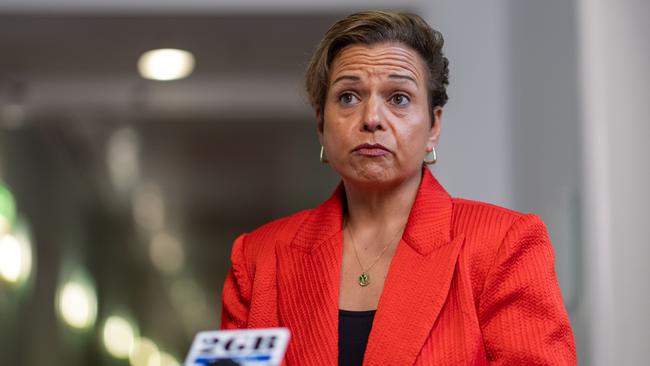Coalition ramps up opposition to controversial misinformation bill
Opposition communications spokesman David Coleman will move a motion in parliament calling on Labor to shelve its controversial laws to combat online misinformation.
Opposition communications spokesman David Coleman will move a motion in parliament calling on the Albanese government to shelve its controversial laws to combat online misinformation and disinformation on the first day of the sitting fortnight.
Mr Coleman will move a private member’s motion on Monday condemning Labor for putting forward the “appalling” draft Bill in its current form, calling on the government to admit the legislation is “deeply flawed” and demanding it “bin the Bill”.
The motion will also raise provisions in the Bill which have been widely criticised, including that content authorised by the government cannot be classed as misinformation under the legislation and its broad definitions that could capture “many statements made by Australians in the context of political debate”.
Mr Coleman said the motion will force the Bill to be debated in the parliament for the first time since Labor released the draft legislation in June, which has since drawn criticism from lawyers, the media union and human rights advocates for chilling freedom of speech.
Submissions responding to the draft Bill, which will grant the Australian Communications and Media Authority the power to fine social media giants millions of dollars for misinformation and content it deems “harmful”, were due on August 20 but were yet to be released late on Sunday.
“The Albanese government has managed to unite civil liberties groups, lawyers, religious institutions and human rights groups against this appalling Bill,” Mr Coleman said.
“We only know about the opposition of so many groups because those organisations have self-published their views on the Bill.”
Communications Minister Michelle Rowland has defended the manner in which submissions have been released as reflecting “longstanding practice”, and said the Bill in its final form would “help keep Australians safe from seriously harmful misinformation and disinformation online”.

The motion comes as a group of prominent legal academics from the University of NSW Allens Hub for Technology, Law and Innovation call for the courts to be granted additional powers to combat serious disinformation campaigns, criticising the Bill for its broad definitions.
The submission, authored by UNSW cyber security expert Susanne Lloyd-Jones, UNSW legal scholar Lyria Bennett Moses and Deakin University legal expert Jayson Lamchek, said the “law should attach criminal or tort liability” to perpetrators of misinformation claims.
It also warned that the Bill in its current form would “capture opinions, discussions and points of view that may be false or wrong at the time they are expressed but, through advances in knowledge and debate, are later shown to be true or correct”.
“We suggest amending the definition of disinformation to include disinformation campaigns,” the submission said.
“This concept implies that some instances of disinformation are more serious than others because they are highly organised, showing a greater degree of ill will by harnessing platforms’ recommendation algorithms, generative artificial intelligence, and other technologies to achieve their harmful purposes.”







To join the conversation, please log in. Don't have an account? Register
Join the conversation, you are commenting as Logout